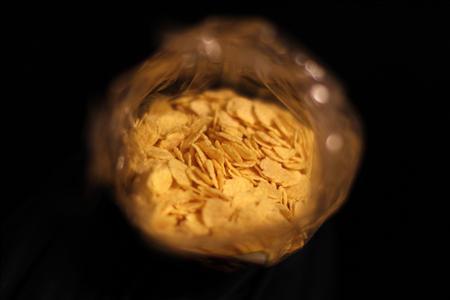
One in every four American children lives in a food insecure household where breakfast isn't a sure thing, lead author Dr. Lana Frantzen told Reuters Health.
"(Cereal) is an excellent breakfast choice, it's simple, and gets those essential nutrients that children need, especially low income minority children," who tend to be hit hardest by childhood obesity and related health problems, said Frantzen, who is employed by Dairy MAX, a regional dairy council in Grand Prairie, Texas.
Previous studies have linked eating breakfast with maintaining a lower body mass index (BMI) over time. The new study looked at the role that breakfast, specifically cereal, plays in both weight and nutrition among low-income kids.
Frantzen and her coauthors interviewed 625 schoolchildren as they progressed from fourth to sixth grades in San Antonio. Once a year they asked the children to remember what they had had to eat over the previous three days and calculated their BMI, a measure of weight relative to height.
As fourth graders, 64 percent of the kids said they'd eaten breakfast on each of the last three days, compared to 42 percent by the time they were sixth graders.
With data for three days per year for three years in a row, the researchers ended up with nine days of breakfast analysis for each child. Kids who ate cereal four out of the nine days tended to be in the 95th percentile for BMI, which is considered overweight, compared to kids who ate cereal all nine days, whose measurements were in the 65th percentile, in the healthy weight range.
Thirty-two percent of fourth graders did not eat breakfast at all, 25 percent had something other than cereal and about 43 percent had cereal.
Cereals, like Frosted flakes, Cheerios and Kix, were the most common breakfast items. Children who didn't eat cereal but did have breakfast reported having foods ranging from scrambled eggs, white bread and sausage to granola bars, tortillas and breakfast tacos.
Only 70 kids had cereal on every one of the three days, but for each time they had cereal, their intake of certain nutrients was higher than that of other kids, Frantzen's group reports in the Journal of the Academy of Nutrition and Dietetics.
Kids who ate more cereal got more vitamin D, B-3, B-12, riboflavin, calcium, iron, zinc and potassium in their diets than kids who ate less cereal or none at all. They also got slightly more calories, fat, fiber and sugar.
Cereals are fortified with a variety of vitamins and minerals, and the milk that usually comes with cereals is a good source of calcium, potassium and vitamin D, Frantzen said.
"I think it was a nice advancement in knowledge overall about the importance of eating breakfast," according to Dr. Matthew Haemer, medical director of the nutrition and fitness clinic at Children's Hospital Colorado in Aurora.
"But the analysis that they do didn't separate out kids who only ate cereal compared to those who ate something else," said Haemer, who was not involved in the study.
Policies like the School Breakfast Program are already in place to provide a low cost or free meal to kids who qualify, but the issue demands more attention and resources, since generations of kids are starting out the day without a healthy breakfast, he said.
Haemer told Reuters Health he was particularly struck by the fact that for the three days surveyed, each additional day that included cereal was associated with a 2 percentile decrease in BMI.
"Moving BMI percentile down 2 percentage points, that's not going to cure the obesity epidemic, but it is a significant difference," he said.
There is an association between cereal and healthier BMI, but it's still unclear how it works, Haemer said. He recommends that if parents choose cereal as a quick, easy option, they go for one high in fiber and low in sugar and fat.
"They didn't really look thoughtfully at the other types of breakfasts that could be eaten, for example there may be benefits of including oatmeal and low fat turkey sausage that could be part of a healthy breakfast," he said.
"There's still a lot of science to be done," he said. "Cereal appears to be part of the picture but it's not the complete picture."







1729930993-0/WhatsApp-Image-2024-10-26-at-08-52-06-(2)1729930993-0-270x192.webp)















COMMENTS
Comments are moderated and generally will be posted if they are on-topic and not abusive.
For more information, please see our Comments FAQ